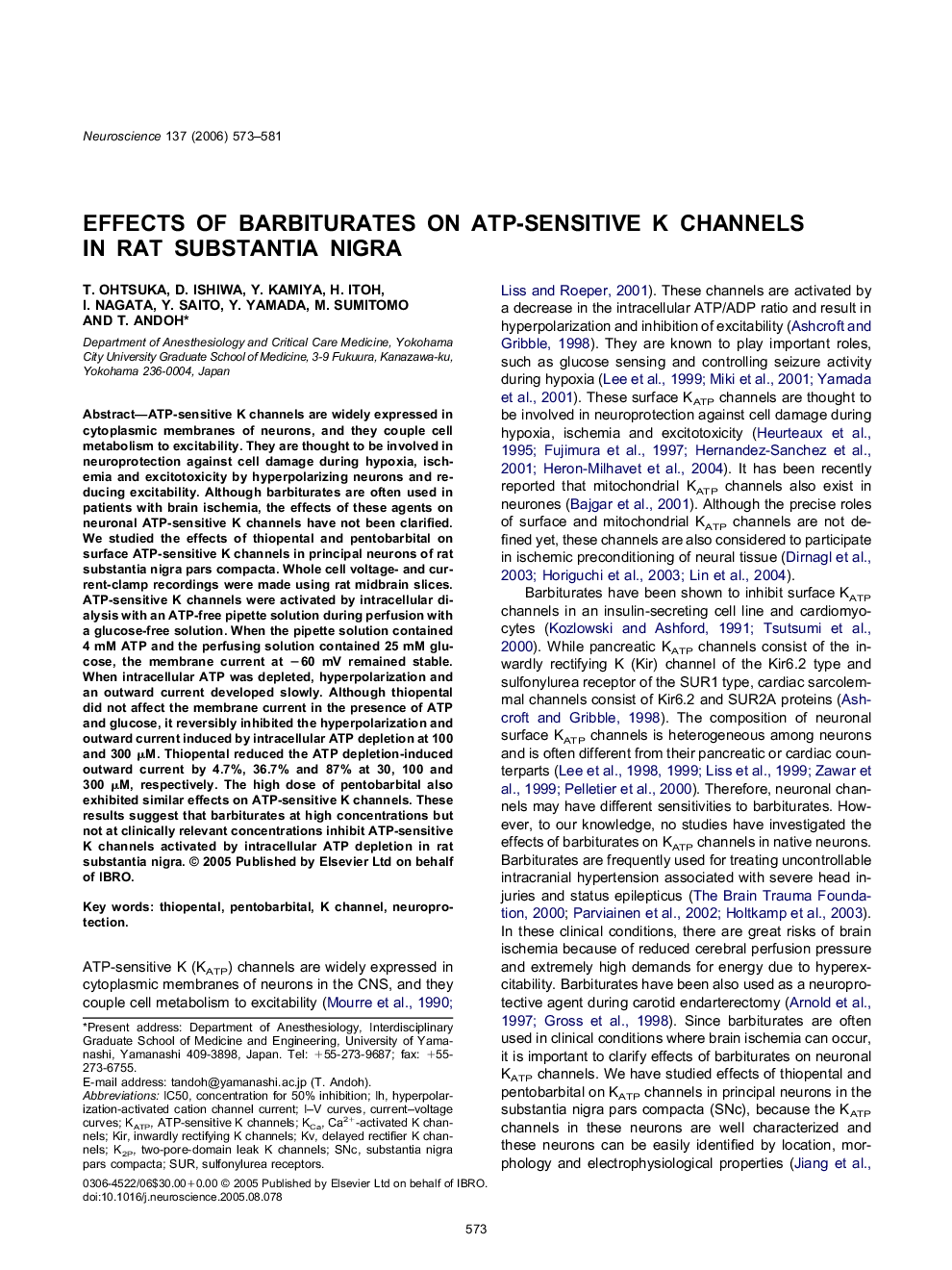| Article ID | Journal | Published Year | Pages | File Type |
|---|---|---|---|---|
| 4342853 | Neuroscience | 2006 | 9 Pages |
ATP-sensitive K channels are widely expressed in cytoplasmic membranes of neurons, and they couple cell metabolism to excitability. They are thought to be involved in neuroprotection against cell damage during hypoxia, ischemia and excitotoxicity by hyperpolarizing neurons and reducing excitability. Although barbiturates are often used in patients with brain ischemia, the effects of these agents on neuronal ATP-sensitive K channels have not been clarified. We studied the effects of thiopental and pentobarbital on surface ATP-sensitive K channels in principal neurons of rat substantia nigra pars compacta. Whole cell voltage- and current-clamp recordings were made using rat midbrain slices. ATP-sensitive K channels were activated by intracellular dialysis with an ATP-free pipette solution during perfusion with a glucose-free solution. When the pipette solution contained 4mM ATP and the perfusing solution contained 25mM glucose, the membrane current at −60 mV remained stable. When intracellular ATP was depleted, hyperpolarization and an outward current developed slowly. Although thiopental did not affect the membrane current in the presence of ATP and glucose, it reversibly inhibited the hyperpolarization and outward current induced by intracellular ATP depletion at 100 and 300μM. Thiopental reduced the ATP depletion-induced outward current by 4.7%, 36.7% and 87% at 30, 100 and 300μM, respectively. The high dose of pentobarbital also exhibited similar effects on ATP-sensitive K channels. These results suggest that barbiturates at high concentrations but not at clinically relevant concentrations inhibit ATP-sensitive K channels activated by intracellular ATP depletion in rat substantia nigra.
